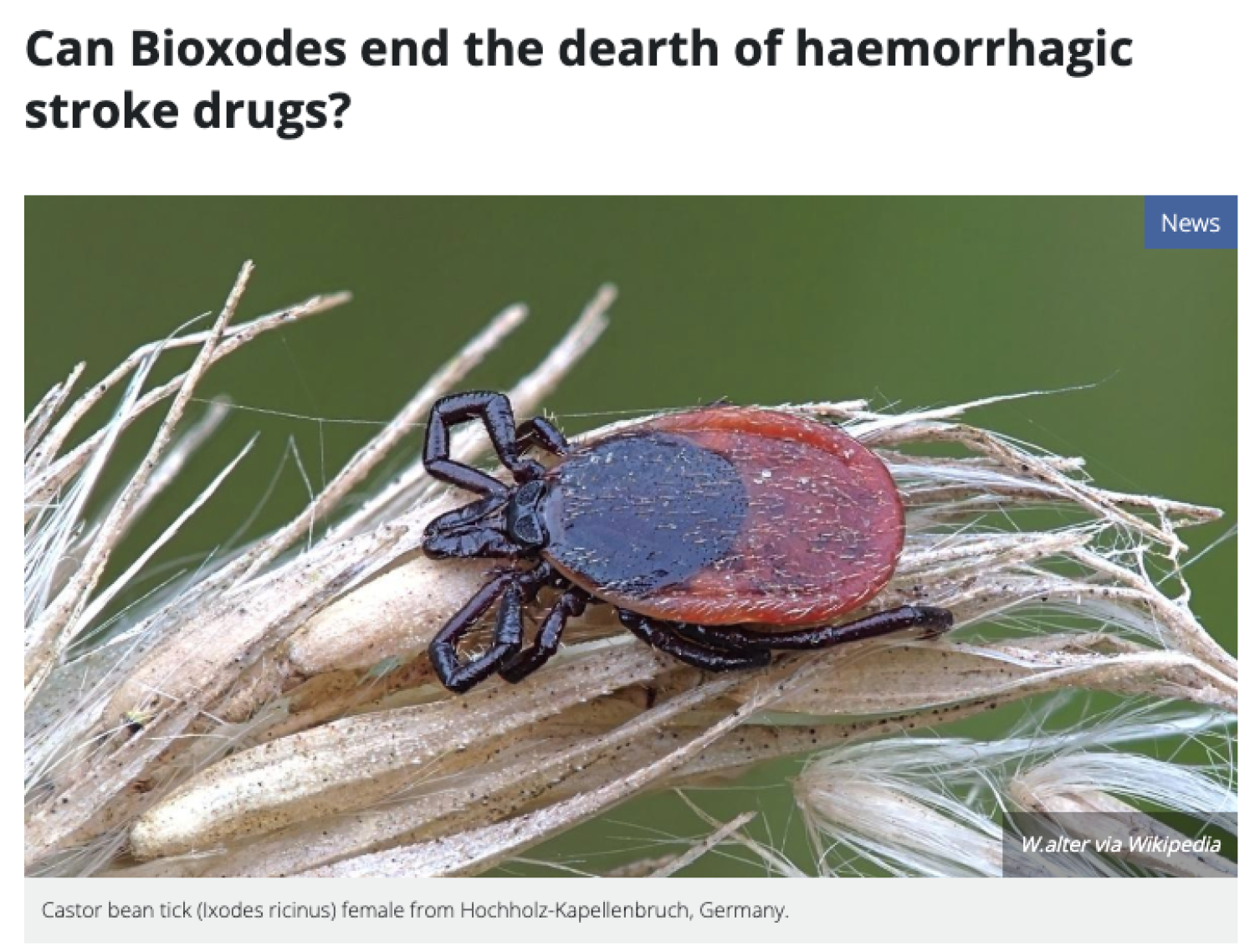Front page article in Pharmaphorum by Phil Taylor There is currently no approved treatment for intracerebral haemorrhagic (ICH) stroke, but Belgian start-up Bioxodes hopes to change that with a drug based on a protein found in the saliva of ticks.
Can Bioxodes end the dearth of haemorrhagic stroke drugs?
There is currently no approved treatment for intracerebral haemorrhagic (ICH) stroke, but Belgian start-up Bioxodes hopes to change that with a drug based on a protein found in the saliva of ticks.
The company has just announced phase 2a results with its candidate, codenamed BIOX-101, which back up the safety of the drug and provide preliminary evidence of its efficacy, and is now planning to move ahead with a larger phase 2b study that could be enough to support regulatory filings.
If that proves to be positive, it could be a transformational event in the treatment of ICH stroke, which accounts for 13% of all stroke cases, but is responsible for 40% of stroke-related deaths. Moreover, the lack of any effective treatment means that, even if patients survive, they are often left with permanent or long-term disability.
That contrasts with ischaemic stroke caused by clots in the brain, which can have its impact moderated at least in part with thrombolytic drugs, provided they are administered quickly enough after symptoms emerge.
Gosselies-based Bioxodes isn't making the full data from the BIRCH study in 16 patients available yet, but has referred to positive results on secondary efficacy endpoints while the safety data has revealed no concerns "related to changes in ICH volumes, serious adverse events, neurological outcomes, or mortality."
No deaths have been seen in the patient cohort in the phase 2a BIRCH trial at all, and – given the high mortality rate with ICH stroke – that in itself is a highly unusual finding, according to the start-up. The study involved men and women who had experienced a first-ever, spontaneous ICH stroke with a volume of between 5 mL and 60 mL – in other words, ranging from a small bleed to a large bleed that would be associated with a high mortality rate.
"While preliminary, the data from this study all point[s] in the right direction," said Bioxodes' chief medical officer, Hans Warrinnier.
"Although haemorrhagic stroke often has debilitating consequences, it is a neglected disease, and the prospect of offering these patients hope is a strong motivating factor for our team," he added.
The next task for the biotech is to launch a Series B fundraising round to raise the cash needed to carry out the phase 2b study and to manufacture sufficient quantities of BIOX-101, according to the company's chief executive, Marc Dechamps.
"This will take approximately a year to complete, so that we hope to start recruitment in the first half of 2027," he said.
BIOX-101 is a recombinant version of Ir-CPI, a coagulation inhibitor from the European tick species Ixodes ricinus, also known as the castor bean tick, that prevents blood clotting as it feeds.
Along with preventing the formation of clots, Ir-CPI is also thought to block harmful neuroinflammatory processes seen in ICH stroke patients.

